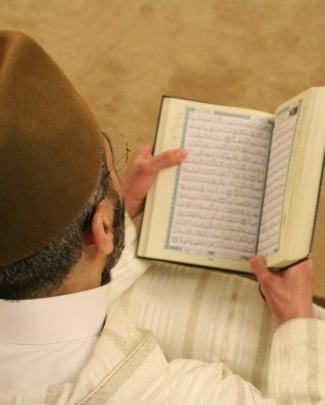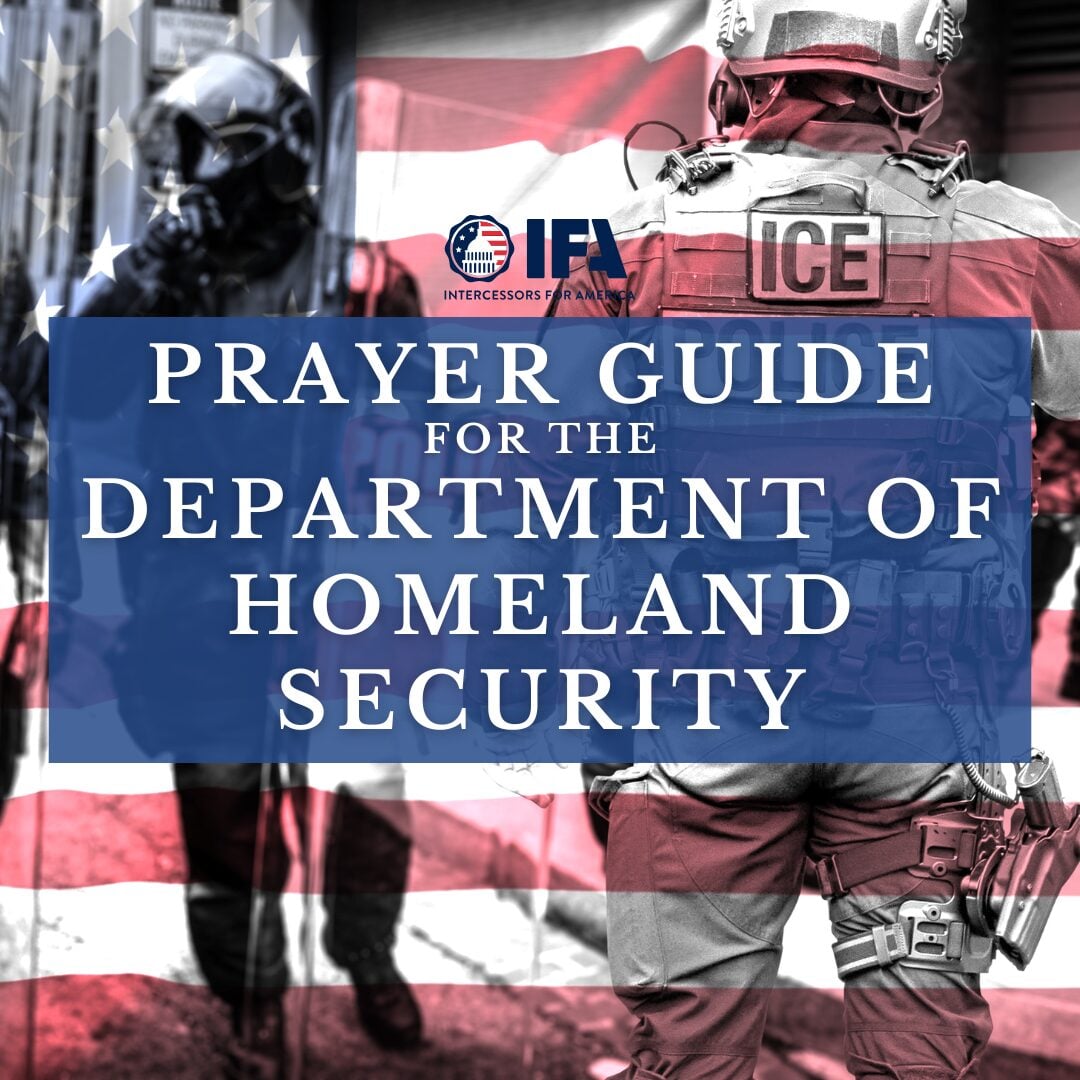Pride Versus Humility
DOD Launches ‘Pride’ Coloring Books for Kids
Satanic Temple Launches ‘Worship’ Tour
America’s Greatest Spiritual Problem
Father’s Day: You Have a Father Who Loves You!
Pride Versus Humility
In this four-part series on the theme of pride versus humility, we have been studying the eternal, universal law stated by Jesus in Matthew 23:12:
“Whoever exalts himself shall be humbled; and whoever humbles himself shall be exalted.” (NASB)
In part 1 of this series, I pointed to the perfect pattern of self–humbling provided by Jesus Christ. From heaven’s glory and His place of equality with God, Jesus took seven downward steps of humility (described in Philippians 2:5–8). He emptied Himself; He took the form of a slave; He came to us in “the likeness of men”—as a normal human being; He assumed the appearance of the men of His time; He humbled Himself to be a mere man, with no special office or position; He endured the common fate of all men—death; and He ultimately died a criminal’s death by crucifixion.
Connect with others in your state in prayer.
Because Jesus humbled Himself so completely in these seven ways, God in turn exalted Him to the highest place in the universe. God gave Him the name that is above every name, and ordained that at the name of Jesus, every knee should bow and every tongue should confess Him as Lord.
In Part 2 of this series, it is important for us to see that although this law of self-humbling was thus perfectly demonstrated in Jesus, this same law operates just as accurately and just as universally in each of our lives. There are three main phases in which we need to apply this principle of self-humbling to our own lives, all of which we will cover in this series of teachings. The first phase is when we come to God initially. The second phase is as we progress in the spiritual life after we have come to God. The third phase is as we relate to fellow Christians.
In this segment—Pride vs. Humility, Part 2—we are going to focus on the initial phase.
Humbling Ourselves To Come To God
How do we humble ourselves in order to come to God initially? In Matthew 18:1–4, Jesus gives us the pattern of a child as an example:
“At that time the disciples came to Jesus, saying, ‘Who then is greatest in the kingdom of heaven?’ Then Jesus called a little child to Him, set him in the midst of them, and said, ‘Assuredly, I say to you, unless you are converted and become as little children, you will by no means enter the kingdom of heaven. Therefore whoever humbles himself as this little child is the greatest in the kingdom of heaven.’” (NKJV)
Some of the disciples were assuming they were already in the kingdom of heaven. But Jesus said, “You haven’t even entered! And the reason you haven’t entered is because you haven’t met the condition.” What was the condition? In His answer, Jesus used the very phrase “humbling himself.” “Whoever humbles himself as this little child is the greatest in the kingdom of heaven.”
The people of Jesus’ day would have expected Him to point to some ruler, some learned rabbi, or some person of great wealth as an example of greatness. Instead, He took the most conspicuous example of weakness and humility: a child. Jesus said, “If you ever want to get into the kingdom of heaven, you have to change and become like this little child.”
Every parent knows that little children are not perfect! But there is one feature of a little child that is almost universally true: a child is teachable. Children don’t have prejudices and preconceptions which shut their minds off from what is true. They receive the truth without having to prove themselves right or demonstrate their cleverness.
Likewise, we have to humble ourselves. We have to become just like the little child whom Jesus selected as the best example of the type of humility He expects.
God Choses The Humble
Continuing our examination of the importance of humility in coming to God, let’s read what Paul says in 1 Corinthians 1:26–29 about the people whom God choose. (Frankly, it’s an unlikely group of people!):
“For consider your calling, brethren, that there were not many wise according to the flesh, not many mighty, not many noble; [Notice the three not many’s— not the wise, the mighty, nor the noble] but God has chosen the foolish things of the world to shame the wise, and God has chosen the weak things of the world to shame the things which are strong, and the base things of the world and the despised God has chosen, the things that are not, so that He may nullify the things that are, so that no man may boast before God.” (NASB)
There are three categories of people who find it particularly hard to get into God’s kingdom: the wise, the powerful and the noble. Does God have anything against wisdom or power or nobility? Not at all. The issue is that those are the three main sources of pride in human nature. People are proud because of their wisdom, education, cleverness, power, influence, social position or noble birth. But here’s the problem: the proud cannot get into the kingdom of God.
In Luke 18, there is a remarkable interview between Jesus and a certain rich ruler. The rich ruler asks Jesus a very earnest question: “Good teacher, what must I do to inherit eternal life?” (verse 18). Let’s see how Jesus responds, beginning with verse 20:
“You know the commandments: ‘Do not commit adultery, do not murder, do not steal, do not give false testimony, honor your father and mother.’” “All these I have kept since I was a boy,” he [the ruler] said. [And I believe he was speaking the truth.] When Jesus heard this, He said to him, “You still lack one thing. Sell everything you have and give to the poor, and you will have treasure in heaven. Then come, follow Me.” When he heard this, he became very sad, because he was a man of great wealth. Jesus looked at him and said, “How hard it is for the rich to enter the kingdom of God! [Why? Because people will so often trust in their riches. Riches are so often a source of pride. But then we see this comment by Jesus:] Indeed, it is easier for a camel to go through the eye of a needle than for a rich man to enter the kingdom of God.” (Luke 18:20–25 NIV)
The experience of living in the land of Israel for several years broadened my understanding of Jesus’ comment to this rich young ruler. In the wall of the old city at the Jaffa Gate in Jerusalem, there was a great big iron gate which was closed every night at sunset. On no account was that gate to be opened until sunrise the next day. However, it would sometimes happen that a traveler on a camel would arrive at the gate after dark, seeking to be admitted into the city. When this occurred, a small gate inside the main iron gate was opened. The man seeking entrance would dismount from his camel, strip the camel of everything on its back, coax the camel to its knees and then, with great difficulty, the camel could just barely squeeze through. What was the name of that small gate? It was known as the Eye of the Needle.
In his response to the rich young ruler, Jesus was describing how it is when a rich man comes to the kingdom of God. He has to lay aside all of his baggage—all his pretension, pride, arrogance, independence —and get down on his knees in order to just barely squeeze through. However, a poor man who carries nothing in his hand but a staff can get through much more easily. All he has to do is stoop, pass through and he is on the inside. The same gate is for all, whether rich or poor. But so often it is harder for the rich to get through than it is for the poor.
Laying Everything Aside
Let’s look at one more pattern for coming to God in humility. It is the account of Naaman, a man in the Old Testament who tried to come to God in a big way and found that it didn’t work. His story is related in 2 Kings 5.
Naaman had a very distinguished background. He was highly regarded, a valiant soldier, and a commander of an army. But he had one problem: he was a leper. How many people are like that? They seem to have everything—but there is a problem.
One of Naaman’s maid servants, a little Israelite girl who had been taken captive, told her master that if he could make his way to the prophet Elisha in Samaria, he could be healed of his leprosy. So Naaman got permission from the King of Syria, and he set out with ten talents of silver (that’s seven hundred and fifty pounds of silver), six thousand shekels of gold (that’s one hundred and fifty pounds of gold) and ten sets of clothing. You see, he was going to come to God in a big way! When Naaman arrived in Israel, the prophet Elisha said, “Send him to me and he will be healed.” Here is the end of the story in 2 Kings 5:9–14:
“So Naaman went with his horses and chariots and stopped at the door of Elisha’s house. Elisha sent a messenger to say to him, ‘Go, wash yourself seven times in the Jordan, and your flesh will be restored and you will be cleansed.’ [What an insult—Elisha didn’t even come to the door! He just sent a message.] But Naaman went away angry and said, ‘I thought that he would surely come out to me and stand and call on the name of the Lord his God, wave his hand over the spot and cure me of my leprosy. [Naaman expected personal ministry from the great prophet—something dramatic.] Are not Abana and Pharpar, the rivers of Damascus, better than any of the waters of Israel? Couldn’t I wash in them and be cleansed?’ So he turned and went off in a rage. Naaman’s servants went to him and said, ‘My father, if the prophet had told you to do some great thing, would you not have done it? How much more, then, when he tells you, ‘Wash and be cleansed!’’ So he went down and dipped himself in the Jordan seven times, as the man of God had told him, and his flesh was restored and became clean like that of a young boy.” (NIV)
Do you see the pattern? Naaman had to lay aside everything. Just like the camel squeezing through that tiny gate, Naaman had to lay aside his rank, his uniform, his wealth, his position, his prestige. He had to take off his clothes and expose that leprous skin of his. But when he humbled himself—when he fully obeyed and dipped into that river seven times—that was when he received his reward. What a beautiful picture of a man who tried to come to God in a big way, but learned to humble himself and receive what God had promised him.
A Simple Act
How about you? Is there any obstacle of pride standing in the way of your coming to the Lord?
As we close Part 2 of this series on Pride vs. Humility, let me ask you a direct question. Is there an issue of pride that may be keeping you from coming fully to God? If so, I would strongly recommend that in a simple act of contrition, you bow the knee to the Lord, humble yourself as Naaman did, strip off anything that might hinder your relationship with the Lord, and come to Him in humility.
The best news of all is that if you will meet that condition of coming to him in childlike humility, He is eagerly waiting to accept you and receive you. Will you take that step toward Him right now?
How are you praying for humility? Share this article to encourage others to pray.
(Used with permission. From Derek Prince Ministries. Photo Credit: Canva)
Partner with Us
Intercessors for America is the trusted resource for millions of people across the United States committed to praying for our nation. If you have benefited from IFA's resources and community, please consider joining us as a monthly support partner. As a 501(c)3 organization, it's through your support that all this possible.


We use cookies to ensure that we give you the best experience on our website. If you continue to use this site we will assume that you are happy with it. Privacy Policy





Comments
Lord, give us courage to humble ourselves, and be stripped of all our pretensions and baggage that keeps us away from you. Help us to humble ourselves and receive your mercy. In Jesus name.